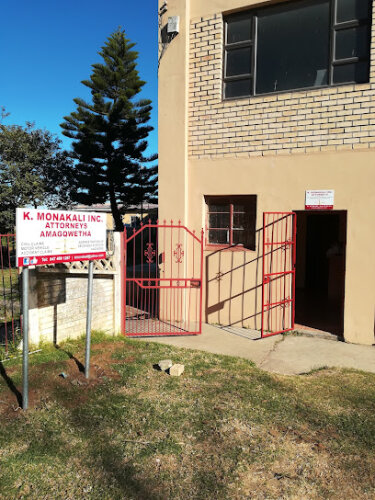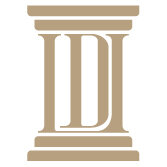Best Whistleblower & Qui Tam Lawyers in East London
Share your needs with us, get contacted by law firms.
Free. Takes 2 min.
List of the best lawyers in East London, South Africa
About Whistleblower & Qui Tam Law in East London, South Africa
Whistleblower and Qui Tam law play a crucial role in promoting transparency and accountability within government, business, and other organizations. In East London, South Africa, these laws are designed to protect individuals who come forward to report unlawful practices, corruption, fraud, and misconduct within their workplaces or in the public sector. While "Qui Tam" actions (where a private citizen sues on behalf of the government for fraud and may receive a reward) are more established in countries like the USA, South Africa's legal frameworks also provide avenues for whistleblowers-those who expose wrongdoing in the public interest-to seek protection and, in some cases, compensation.
Why You May Need a Lawyer
Speaking out against wrongdoing in a workplace or public body can be daunting, and the legal processes that follow can be complex. You may need a lawyer for the following reasons:
- To understand your rights and obligations before making a disclosure.
- If you face retaliation, unfair dismissal, or victimization after blowing the whistle.
- To ensure your identity is kept confidential where possible.
- For advice on gathering and presenting evidence in a manner that upholds the law.
- If you wish to report fraud against the government or public entities and seek remedies or protection available under the law.
- To represent you in disputes, hearings, or court proceedings arising from your disclosure.
- Assistance in negotiating settlements or compensation, if applicable.
Local Laws Overview
South Africa, including East London in the Eastern Cape, has several laws relevant to whistleblowers:
- Protected Disclosures Act, No. 26 of 2000: This key legislation offers protection to employees who disclose information about unlawful or irregular conduct by employers or colleagues. The Act aims to protect whistleblowers from occupational detriment or dismissal.
- Prevention and Combating of Corrupt Activities Act, No. 12 of 2004: This law criminalizes corruption and provides measures for reporting suspicious activities, with some protections for those making reports.
- Labour Relations Act, No. 66 of 1995: Provides protection against unfair dismissal, including cases arising from whistleblowing.
Frequently Asked Questions
What is whistleblowing?
Whistleblowing occurs when someone exposes information or activities regarding illegal, unethical, or harmful practices in an organization, usually for the public good.
Does South Africa have a whistleblower protection law?
Yes, the Protected Disclosures Act provides protection to employees who report unlawful or irregular conduct by employers or coworkers, aiming to prevent retaliation.
Are all disclosures protected?
Not all disclosures are protected. Protection generally applies to disclosures made in good faith and through the correct legal channels. Frivolous or malicious disclosures may not be protected.
Can I remain anonymous if I report wrongdoing?
You may request anonymity, but it might not always be possible, especially if investigations require further details. Obtaining legal advice can help safeguard your identity as far as possible.
What if I am dismissed for whistleblowing?
If you are dismissed for making a protected disclosure, you may have grounds to challenge the dismissal at the Commission for Conciliation, Mediation and Arbitration (CCMA) or through the courts, and you may be reinstated or compensated.
Does South Africa have Qui Tam rewards?
South Africa does not have direct Qui Tam provisions with financial rewards for whistleblowers, as in the US. However, whistleblowers may be compensated for unfair treatment or dismissal.
How do I report corruption or fraud in East London?
You can report corruption and fraud to your organization's designated whistleblowing channel, or externally to bodies such as the Public Protector, the South African Police Service, the Special Investigating Unit, or anonymously via managed hotlines.
Should I gather evidence before reporting?
It is advisable to have supporting evidence, but do not break the law or company policies to obtain it. Legal advice can help ensure your safety and the legality of your actions.
What protections exist for whistleblowers outside the workplace?
The main focus of local law is workplace-related whistleblowing, but other legal remedies might be available for those reporting as private citizens. Consultation with a lawyer is recommended.
Who can I contact for help if I am unsure?
You can contact a specialized labour or employment lawyer, your local Legal Aid office, or relevant governmental bodies dedicated to anti-corruption and public protection.
Additional Resources
Here are some additional resources and organizations offering support or information regarding whistleblower and anti-corruption matters in East London:
- Office of the Public Protector (South Africa)
- Special Investigating Unit (SIU)
- Public Service Commission
- South African Police Service Anti-Corruption Hotline
- Legal Aid South Africa - East London Office
- Commission for Conciliation, Mediation and Arbitration (CCMA)
- Corruption Watch (an NGO supporting whistleblowers)
- Local law firms specializing in Labour and Employment Law
Next Steps
If you are considering whistleblowing or believe you have been treated unfairly for exposing wrongdoing, it is advisable to:
- Seek confidential legal advice from a lawyer experienced in whistleblower or employment law, preferably based in East London.
- Gather relevant information or documentation, but never engage in illegal activities to collect evidence.
- Determine the most appropriate channel for disclosure (internally or externally) in line with the law and your organization’s policy.
- Familiarize yourself with your rights under the Protected Disclosures Act and related legislation.
- Consider support services or hotlines for additional guidance, especially if you feel unsafe or at risk of retaliation.
Lawzana helps you find the best lawyers and law firms in East London through a curated and pre-screened list of qualified legal professionals. Our platform offers rankings and detailed profiles of attorneys and law firms, allowing you to compare based on practice areas, including Whistleblower & Qui Tam, experience, and client feedback.
Each profile includes a description of the firm's areas of practice, client reviews, team members and partners, year of establishment, spoken languages, office locations, contact information, social media presence, and any published articles or resources. Most firms on our platform speak English and are experienced in both local and international legal matters.
Get a quote from top-rated law firms in East London, South Africa — quickly, securely, and without unnecessary hassle.
Disclaimer:
The information provided on this page is for general informational purposes only and does not constitute legal advice. While we strive to ensure the accuracy and relevance of the content, legal information may change over time, and interpretations of the law can vary. You should always consult with a qualified legal professional for advice specific to your situation.
We disclaim all liability for actions taken or not taken based on the content of this page. If you believe any information is incorrect or outdated, please contact us, and we will review and update it where appropriate.










